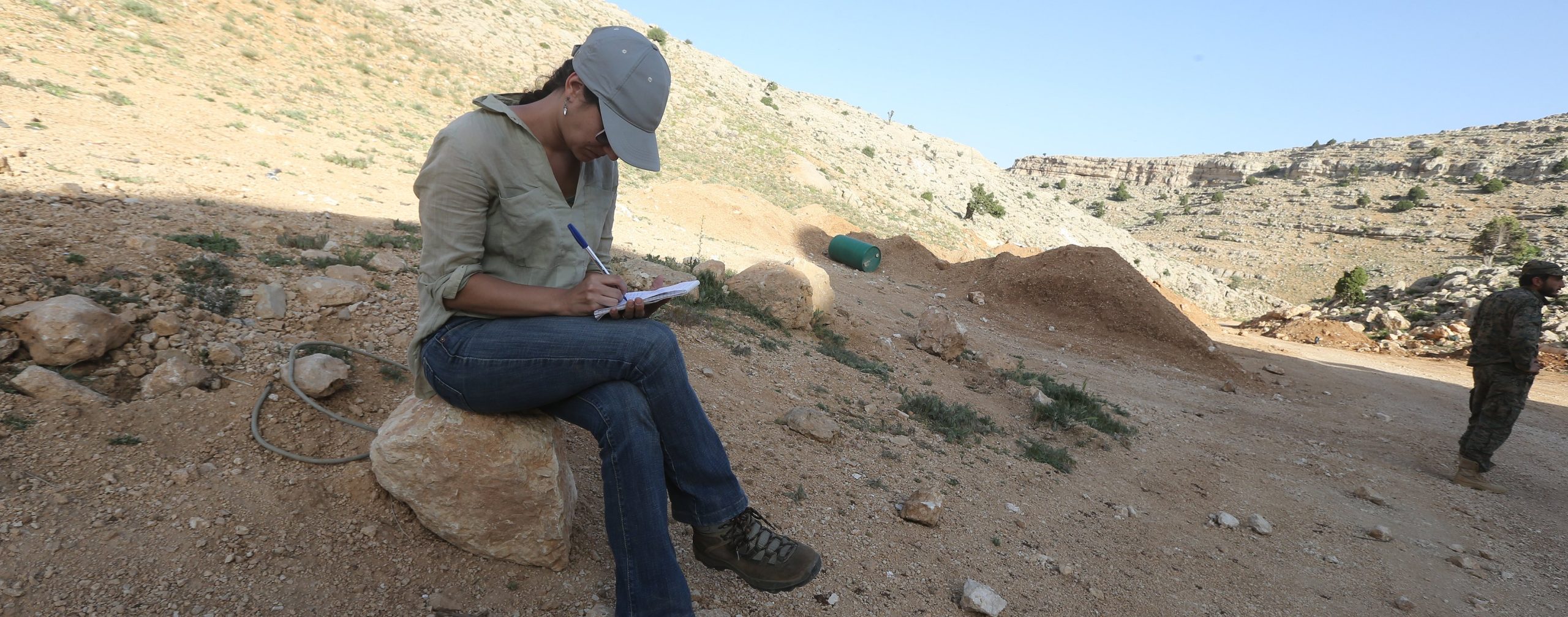As I looked down at the white lace seat coverings in the taxi at Tokyo airport, and watched the driver automatically close the doors from his seat, the reality of my new posting started to sink in. I moved to Tokyo in January 2018, where I am now the deputy news editor and economics editor for Agence France Presse (AFP).
I wanted to write about something other than war and upheaval, I wanted a new challenge, and I wanted to avoid being pigeonholed.
I had spent five years in Lebanon and another two-and-a-half before that in Jerusalem, with reporting trips across the region during one of its most turbulent periods in years, and I wanted a change.
I wanted to write about something other than war and upheaval, I wanted a new challenge, and I wanted to avoid being pigeonholed. I suspect this is a concern for many journalists with a connection to or expertise in one part of the world.
Some people are eager to devote their careers to one region, and that is a valuable decision that produces incredibly experienced and knowledgeable reporters. But I worried that I'd end up shackled to the Middle East because I speak Arabic and have experience there.
For several years I had been telling my bosses at AFP that I wanted to leave the Middle East eventually. They weren't eager to lose an Arabic-speaking journalist to another region, but they were largely supportive.
AFP provides relatively good opportunities for movement between regions. But moving to another bureau requires groundwork that includes talking to bosses and people in the areas and offices you have in mind. So I applied for several jobs before I got this one. The process was frustrating at times, but it showed my employers that I was serious about wanting to move, and helped build my case.
Preparing for the move was intimidating. I was plunging into a region that is largely unfamiliar to me. I began by canvassing friends and colleagues in Japan for advice on books to read, non-fiction and novels too because I think they also have good insights into a place and its people.
I started updating my Twitter lists, following journalists, academics, politicians and cultural figures in Japan and the region. I also downloaded apps to start learning Japanese characters, though I soon realised they would be totally insufficient, and I have effectively resigned myself to the fact that I simply won't be able to function here alone in Japanese.
The culture shock has been fairly profound. Gone are the days of Whatsapping Middle Eastern politicians or officials. Here, interview requests are often submitted by fax. Officials show up with multiple folders of documents and lists of prepared answers.
Arriving in our office, I was initially deeply worried about the cultural differences, having read a lot about the importance of formalities in Japanese business and social interactions. I address my Japanese colleagues by their name with the honorific "san" afterwards, and when I interview people I make sure to present my business card the right way: facing towards them so they can read it, grasping the top corners carefully, and bowing as I hand it over.
But I have also come to realise that as a foreigner, expectations for me are somewhat lower. I am sure I flub certain social rules, but I do what I can.
The culture shock has been fairly profound. Gone are the days of Whatsapping Middle Eastern politicians or officials. Here, interview requests are often submitted by fax. Officials show up with multiple folders of documents and lists of prepared answers. But their answers are often incredibly dry and thin.
And as I don't speak Japanese, for the first time in my professional life I'm often utterly reliant on someone helping me with translation. That has been one of the hardest things to accept.
Despite that, the move has given me the chance to learn and grow. And I bring a fresh perspective to an office staffed mostly by Japanese and foreign reporters who have been here for many years.
I worry sometimes that I am not qualified to be covering subjects like central bank decisions and sports, but that pushes me to read and learn more.
Sara Hussein’s top tips for journalists looking to move around in their careers
1) Be flexible. Don't limit yourself to applying for jobs in one place or region. An unexpected opportunity may present itself.
2) Be political. Network with the right people in your organisation, or elsewhere if you're looking to move.
3) Be patient. It might take years but the groundwork of networking or job applications will build towards your goal.
4) Be confident. It is easy for an employer to hire someone who already knows a region, or is based there. You have to convince them your skills are transferable and make you a better bet than someone already on the ground.
Photo: AFP correspondent and MCJN mentor, Sara Hussein, on a field trip at the Syria-Lebanon border.
